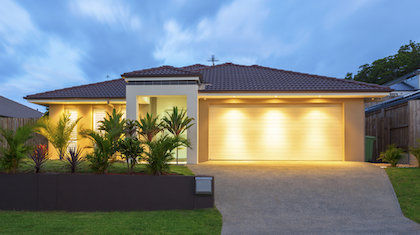
Home ownership continues to be our Great Dream, yet according to Domain.com.au, many of us are investing in bricks and mortar much later in life. So, what does it take to bring this dream to life with retirement looming?
There are many reasons you might purchase a home later in life: perhaps you’re starting fresh post-divorce, or you own a home and have decided to buy a second property to help out your kidults.
Regardless, it comes down to the same thing: knowing what you’re getting into and being ready.
Buying later presents opportunities that younger house-hunters overlook as proximity to schools and playgrounds isn’t so important.
On the flipside, if later-life home-ownership figures in your future, you should be working with your financial adviser now – and here’s why.
Time
Our population is living and working longer. We can save more towards a home with longer to pay it off. But really, do you want to be stuck with mortgage repayments chewing through your income – after retirement?
What if you purchase just before retirement? Servicing a loan is relatively easy while gainfully employed, particularly with record low interest rates. Bad news is they won’t stay low forever. Rising interest combined with reducing income can quickly turn the dream into a financial nightmare.
Job security
According to the Australian Institute of Health and Welfare (AIHW), in the period 1984 – 2014, labour force participation of Australians aged 55 – 64 grew from 41% to 64%. Good news. The Australian Bureau of Statistics (ABS) for the period 2002 – 2010, reports “declining levels of full-time employment” among the same age group indicating greater numbers of older Australians working fewer hours. Not so good.
With fewer full-time job opportunities for those aged over 55, if you’re still considering a pre-retirement mortgage, consider:
Compromises
If your retirement goals include travel, hobbies or even a weekly round of golf, servicing a mortgage may overburden your budget, forcing you to cut back your spending and lifestyle.
Regardless of home ownership, the Australian Centre for Financial Studies (ACFI) reports that 20% of retirees’ average household expenditure exceeded income, leaving no alternative but to draw on savings or liquidate assets just to live.
Now, throw a mortgage into the mix …
Ongoing maintenance
Be realistic about your budget and your shopping list. Consider what mod-cons you genuinely need. And size does count! If, down the track, you can’t physically maintain your home, could you afford gardeners, cleaners, etc, while repaying a mortgage?
Superannuation
Ah, that warm glow lighting our path to retirement. You could use your super to buy a house but what will you live on? The age pension? Will that fund your desired lifestyle?
To quote the ABS, “… key factors will be people’s plans as they get older, including when and how they intend to retire and what factors will influence their decisions.”
We don’t always agree with government reports, but in this it’s spot-on.
Our longer life expectancy means retirement planning is more important than ever. Talking with your financial adviser as early as possible will help you set up a strategy for living – to retirement and beyond!
